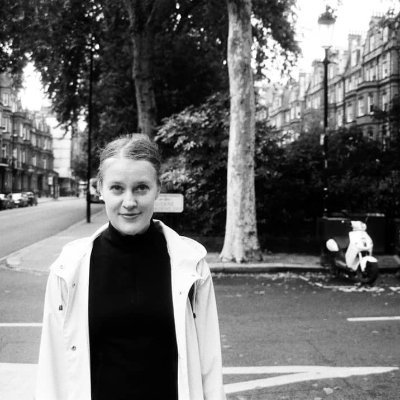The winner of Anchor 2023 Ichiko Aoba (photo by Dominik Friess).
The annual international music award ceremony took place at Hamburg’s St. Pauli Theater as part of the vibrant Reeperbahn Festival.
A red carpet procession with guests and jury members, happening amidst the frenzy of the notorious red-light district, is part of the festival’s kaleidoscopic experience. Once in the vintage theatre stalls, the attendees find themselves in a more glamorous environment. In a casual and cheerful manner, hosts Alexandra Maurer and Pelle Almqvist of Swedish garage rock outfit The Hives welcome the audience at “the most relaxed ceremony”. Shortly after, the two were joined on stage by the jury including producer Tony Visconti and three artists Banks, Katie Melua, and Tayla Parx. As the jurors move from the stage to the balcony, the standard ceremonial procedure becomes more engaging: the members of the board are interviewed by the hosts amidst the surprised spectators.
Unlike three others, Visconti has been the Anchor jury board member since the inception of the award in 2016. Despite his recent interview in MOJO magazine, where the iconic producer tells journalist Jim Irvin about being unimpressed with the state of contemporary music, Visconti looks and sounds rather enthusiastic both on stage and in private. “The reason I said that I don’t have a favourite producer is because there are so many people out of production nowadays, more than just one producer in charge, you don’t really know who does what”, he tells The Music Void. “In the way I came up, there was always just one producer who did everything. Most producers of my generation did. I’m also an engineer and an arranger. Nowadays anybody can be a producer with their laptop. That doesn’t worry me because I still get work but it’s gonna be very hard for young people to make a living as a producer because the competition is absolutely fierce. A hundred thousand songs are released every day according to Google. Even if it’s fifty thousand, it’s still too much music”.
It’s apparent that the six Anchor nominees are the artists who managed to get through the dense forest of releases and make themselves heard. Hamburg-born and raised indie-pop artist Berq has been documenting his creative process on Tik Tok where he gained a cult following. There is also a sense of diversity. Berq’s performance during the ceremony is followed by other nominees, UK songwriter Paris Paloma, Swedish R’n’B singers Kendra Egerbladh aka Waterbaby and Hannes, indie-folk Brooklyn-based duo Daisy The Great and Japanese guitarist Ichiko Aoba. Despite the subtlety, contrasting to the straightforwardness of the rest, the latter became the winner. Alone on stage, Aoba played the classical guitar, creating a disarming and enchanting baroque-pop texture, with her vocals alluding to such psychedelic outfits as The United States of America.
Talking about the diversity of the nominees, Visconti says that the emotional component of music inevitably served as the key element in the selection process. “In the end, we just go by our emotions and it was Ichiko who gave us the most emotion, she goes into a certain state when she sings, she comes from a place of serenity”.
To Visconti, who worked as a producer in France and Germany, a different language and foreign culture don’t create an obstacle in communication. “I work in all countries and I can work in different languages and have made a lot of French albums. I used a studio in Berlin for making David Bowie records. It’s a universal language when you work in a studio with everybody”. He adds after a short pause. “But you have to sing in English to go mainstream, you rarely find a French record [in French] that goes to the United States and England”.
The fact that the winner’s song “Bouquet” has inclusions of English names of flowers (“lotus, peony, daisy”) embedded in the Japanese lyrics proves this theory to be true. Still, it’s gratifying to see that Anchor is more adventurous in their selection than other awards such as the Mercury Prize. Although having a growing fanbase in Japan, Ichiko Aoba isn’t your standard Eurovision act.
Still, the music business hasn’t diverted from the controversial profit-making course, Visconti says. “There are always artists who try to create something new but most artists try to create something that they heard last month, and even record labels, very professional record labels, if someone had a hit with a particular sound, the label would encourage you to make a record with that sound. It makes me sick that they would spend all that money on copying something rather than discovering new talent. I think if you wanna make money, discover someone who is unknown and has a great talent. In the 1970s, labels like Parlophone and EMI were signing close to a hundred acts a year. That would put out a hundred singles in the first year and only about three would have hits. And they would drop out another ninety-seven”.



